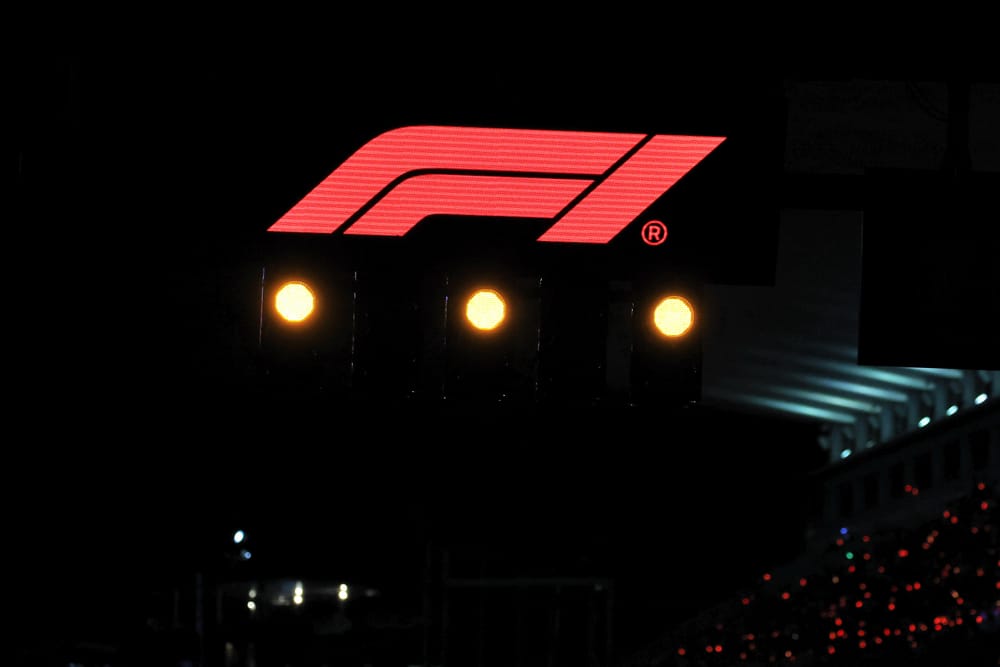Up Next

Formula 1's long-expected formal rejection of a new entry from Andretti and General Motors has arrived, along with its rationale – which is extensive, if not particularly convincing.
Andretti always faced a major challenge in clearing this hurdle despite receiving FIA approval in late 2023, given the commercial rights holder and existing teams were hesitant to welcome an 11th team. And now we know it has failed.

F1 issued a statement critiquing the Andretti bid on various fronts, ranging from competitiveness concerns to the perceived lack of commercial value and even essentially brushing off the Andretti name as an irrelevance.
Doubts about Andretti's potential competitiveness seem a stretch, especially since Andretti showcasing its capability to form a competitive team was a key part of gaining FIA approval. It’s also fair to question whether it’s the commercial rights holder’s place to judge a team’s competitive prospects.
F1 has attempted to tie competitiveness directly to the ‘value’ a new team would bring. So however much you agree with the claim, vaguely stating ‘you need to be competitive to add value and Andretti wouldn’t be competitive’ at least attempts to establish clearly why it is a relevant concern.
F1's argument seems to be that Andretti, as a novice constructor, would struggle to build one car to the 2025 rules and compete that season while also juggling building another car to totally different 2026 regulations. That, at the very least, looks hypocritical when the last new team, Haas, did exactly that in its first season in 2016 and was immediately competitive. Presumably F1’s argument is that Andretti is entering with a very different team/technical model so it’s not a fair comparison.
The strongest part of F1’s rejection probably relates to how much it has stressed the absence of a General Motors works engine as a significant factor. Although not all of the arguments within that necessarily stand up to scrutiny. For example, despite customer teams being the championship’s lifeblood, F1 argues Andretti entering and needing an engine from somebody else would somehow damage the championship’s prestige.
There is also a claim that taking an engine from an existing manufacturer while Andretti works with GM on its own engine would present the short-term supplier with “a risk to its intellectual property and know-how”. And finally F1 has indicated that Andretti applying for 2028, when it has that GM engine, would be viewed differently to this application.
Whether you agree with all of that or not, the bottom line is F1 sets out a stall: a works team would be welcome, another customer team (especially one with only a short-term engine supply arrangement) has too much baggage attached.
And perhaps inevitably, another core part of F1's rejection seems to revolve around financial implications.
F1 sees no substantial commercial benefit in adding an 11th team. The statement that Andretti's entry wouldn't positively impact the commercial rights holder's financial results reflects a clear view of the team's potential (limited) contribution, even though that is almost certainly applicable to several current teams as well.
There are other arguments that are either spurious or divisive (or both). The effective assertion that some circuits simply don’t have facilities big enough for an 11th team and how taking up more space would negatively impact its competitors feels like a particular open goal for derision.

As for dismissing the relevance of the Andretti name in the manner F1 did, that is inevitably controversial and risks coming across as ignorant or disrespectful. Given there are lesser-known entities already in F1, and even one ghastly entire new identity based on two corporate sponsors, it also feels in poor taste and blind to a big issue with the current composition of part of the grid.
Ultimately, though, F1 did not want a new team and did not start this process. So we should not really be surprised to see a big attempt to justify saying no. It could not reject Andretti for the sake of it, or on a whim.
While this feels like the inevitable outcome with, broadly, familiar arguments, they have been made more emphatically and in a greater number than might have been expected. It actually feels a little like quantity over quality because some of the arguments simply aren't that compelling.
They also definitely aren’t strong enough to soothe those that this decision has clearly enraged.
I'm devastated. I won't say anything else because I can't find any other words besides devastated. pic.twitter.com/UaFBC5n9qF
— Mario Andretti (@MarioAndretti) January 31, 2024
The backlash is huge, and it would be surprising if this ends here - Andretti is surely not going to let this rest given all it has put into the project so far and the confidence it had in his case.
Based on the rigour that has gone into establishing this rationale, and the extent of that, F1 probably knows that.





